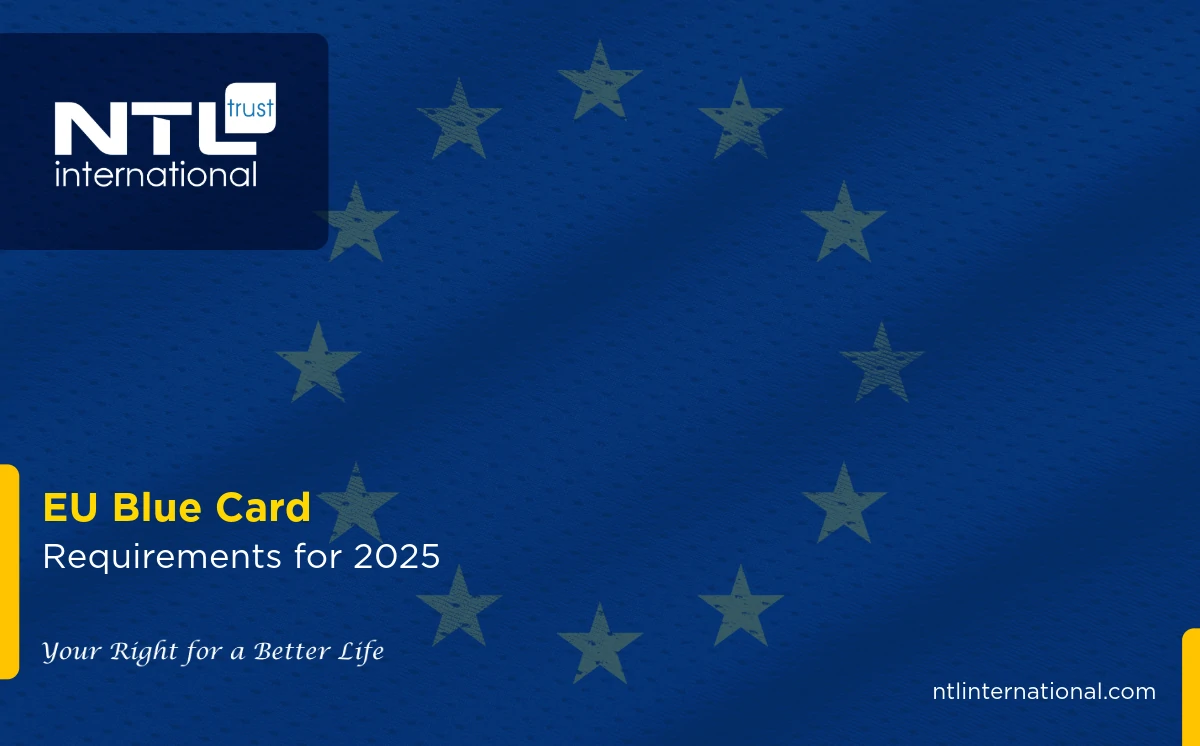
The requirements for the EU Blue Card vary across member states, as there is no unified system at the EU level. Each country has its conditions, typically high academic qualifications, a job offer from an approved employer, and a specific minimum income threshold. It is important to note that the EU Blue Card is available in most Schengen Area countries, excluding Denmark and Ireland, which do not participate in the program.
Key Requirements for the EU Blue Card in 2025
Minimum Salary Threshold:
Each country sets its minimum salary requirement for applicants. For instance:
-
- Germany: €58,400 (or €45,552 for shortage occupations, based on 2024 rates).
- France: €55,419 annually.
- Netherlands: Approximately €5,670 per month (as of 2024 rates).
Qualification Recognition:
-
- All countries require a recognized university degree or an equivalent qualification.
- Some may demand additional recognition of foreign credentials, such as using the Anabin system in Germany for degree evaluation.
Job Offer Requirements:
-
- Applicants must have a binding employment contract or a formal job offer.
- Priority is often given to candidates in shortage occupations (e.g., IT, engineering, and healthcare).
Language Requirements:
-
- Most countries do not impose strict language requirements for obtaining the Blue Card.
- However, proficiency in the local language may be necessary for certain professions, such as medical roles in Germany or Austria.
Processing Times:
-
- Application processing times vary significantly, ranging from a few weeks in countries like Estonia to several months in countries like Italy.
Transition to Permanent Residency:
-
- The duration required to transition to permanent residency differs across countries:
- Germany: 33 months (or 21 months with sufficient German language skills).
- France: 5 years of cumulative residency within the EU.
- The duration required to transition to permanent residency differs across countries:
Family Reunification:
-
- Family members typically receive residence permits and the right to work.
- Specific policies, such as waiting periods or proof of financial stability, vary by country.
Targeted Professions:
-
- Certain countries focus on specific sectors or professions due to local labor shortages (e.g., IT in Finland, healthcare workers in Belgium).
Schengen Area Countries Participating in the EU Blue Card Program:
The EU Blue Card is widely available across the Schengen Area. Participating countries include:
The EU Blue Card offers broad accessibility in the Schengen Area, but the application requirements and conditions differ between countries. For those interested in this opportunity, it is beneficial to provide tailored guidance for each country to help clients choose the best destination based on their qualifications and objectives.
Green Visa in UAE, longer stay & more facilities
Recently, the UAE has started receiving applications for Green Visas/residence permits.
As part of an ongoing effort to create new opportunities and attract a larger audience of investors and entrepreneurs, the UAE has introduced a new visa that allows its holder to reside in Dubai for 5 years, with the possibility of renewal.
President Erdoğan launches the largest housing project in Türkiye
The Turkish President Mr. Erdoğan, announced in a speech yesterday the work on the largest housing project in Turkey.
Announcing the new Prime Minister of Saint Kitts and Nevis
The new Prime Minister of Saint Kitts and Nevis Dr. Terrance Drew
Albanian citizenship by investment program coming soon
The Albanian government, like its neighbours; intends to draft citizenship by investment program law for its country. Which will open new horizons for the country and foreign investors as well.
The 7 most famous tourist places in Portugal
If Portugal is your next travel destination, there are a few places we recommend you to visit.
7 recommended tourist places to visit in Portugal:
Portugal is one of the countries that have a long history and a particular geographical location, so its historical and tourist attractions have diversified, including:
Green Visa in UAE, longer stay & more facilities
Recently, the UAE has started receiving applications for Green Visas/residence permits.
As part of an ongoing effort to create new opportunities and attract a larger audience of investors and entrepreneurs, the UAE has introduced a new visa that allows its holder to reside in Dubai for 5 years, with the possibility of renewal.
President Erdoğan launches the largest housing project in Türkiye
The Turkish President Mr. Erdoğan, announced in a speech yesterday the work on the largest housing project in Turkey.
Announcing the new Prime Minister of Saint Kitts and Nevis
The new Prime Minister of Saint Kitts and Nevis Dr. Terrance Drew
Albanian citizenship by investment program coming soon
The Albanian government, like its neighbours; intends to draft citizenship by investment program law for its country. Which will open new horizons for the country and foreign investors as well.
The 7 most famous tourist places in Portugal
If Portugal is your next travel destination, there are a few places we recommend you to visit.
7 recommended tourist places to visit in Portugal:
Portugal is one of the countries that have a long history and a particular geographical location, so its historical and tourist attractions have diversified, including:





